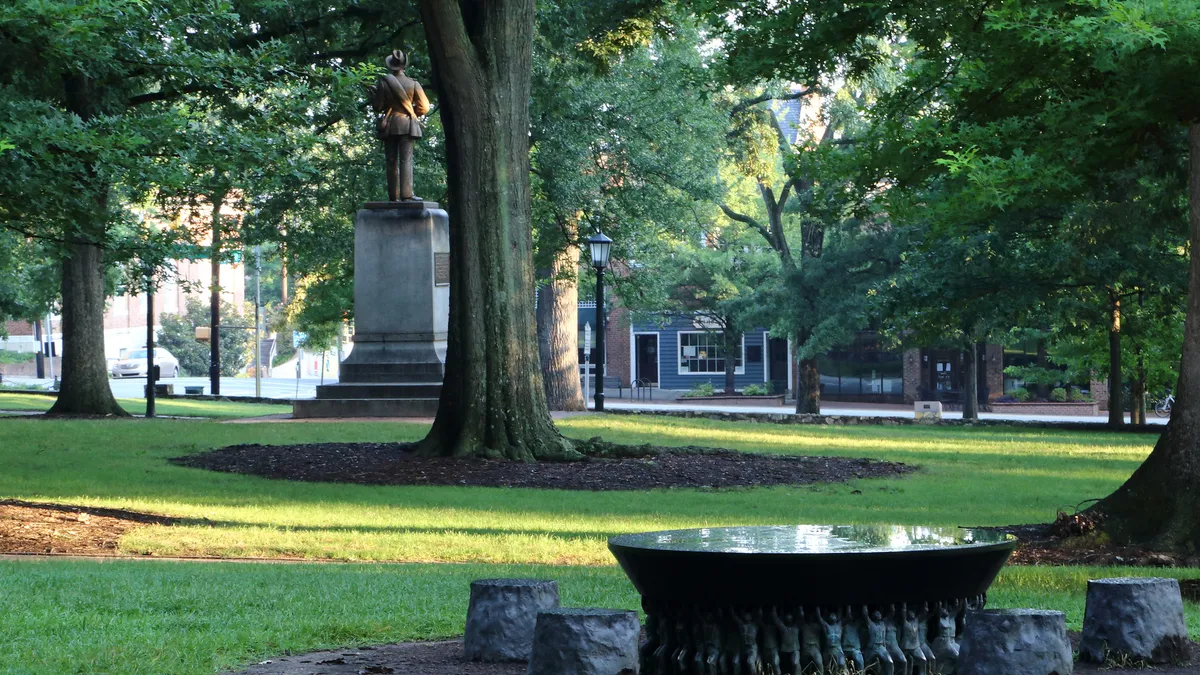Dive Brief:
- The Confederate statue at the center of a decades-long dispute that came to a head earlier this academic year could soon be reinstated on the campus of the University of North Carolina at Chapel Hill after protesters toppled it in August, The News & Observer reported.
- The UNC Board of Trustees on Monday approved a plan to house Silent Sam, as the statue is known, in a new, $5.3 million history center on the edge of campus. Hundreds of demonstrators gathered around the empty base of the statue Monday night in protest. The college has faced pressure to relocate the statue off campus, though it has cited a 2015 state historic preservation law as a limiting factor.
- The UNC System Board of Governors will take up the decision at its Dec. 14 meeting. The N.C. Historical Commission must also approve the proposal. The university said it would seek public funds to build the new center, which would be completed in 2022 and cost $800,000 annually to operate.
Dive Insight:
UNC Chapel Hill students, faculty and others are pushing back on the university over its plans for the century-old monument. Hundreds of professors signed letters asking officials to avoid returning the statue to its location “at the front door” of campus and to reconsider the context in which it is presented.
Silent Sam has long drawn ire for memorializing the Confederacy, and increasingly so as more campuses respond to calls to remove symbols reflective of the systemic racism that defined their past.
Such statues near the campus of the University of Virginia were covered for months following a highly publicized white supremacist protest during the summer of 2017 in Charlottesville, Virginia, concerning the removal of a Confederate statue from a park there.
And in the aftermath of that event, the University of Texas at Austin removed a handful of Confederate statues from their public locations on campus. In a letter to the university community, UT Austin President Greg Fenves likened Confederate monuments today to "symbols of modern white supremacy and neo-Nazism."
The Southern Poverty Law Center notes that more than 100 Confederate symbols and monuments have been removed from public places across the U.S. since the July 2015 mass shooting at the Emanuel African Methodist Episcopal Church in Charleston, South Carolina, where nine black attendees were killed by a white supremacist.
The artifacts colleges are reconciling with take several forms. The University of California, Berkeley and Stanford University are renaming campus buildings and programs that were previously the namesakes of individuals who played a role in oppressing minorities and native culture. On Saturday, Duke University announced it would rename a building originally named after a late-19th-century university benefactor who publicly identified as a member of the Ku Klux Klan and white supremacist.
And Dartmouth College recently announced it would remove murals dating from the 1930s with racist and sexist imagery. They will be preserved for academic use at a nearby museum.









